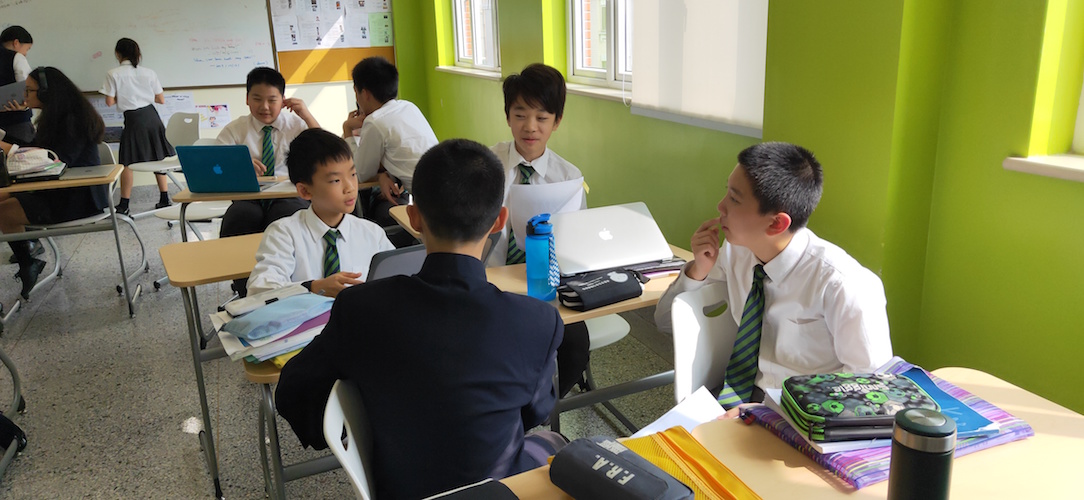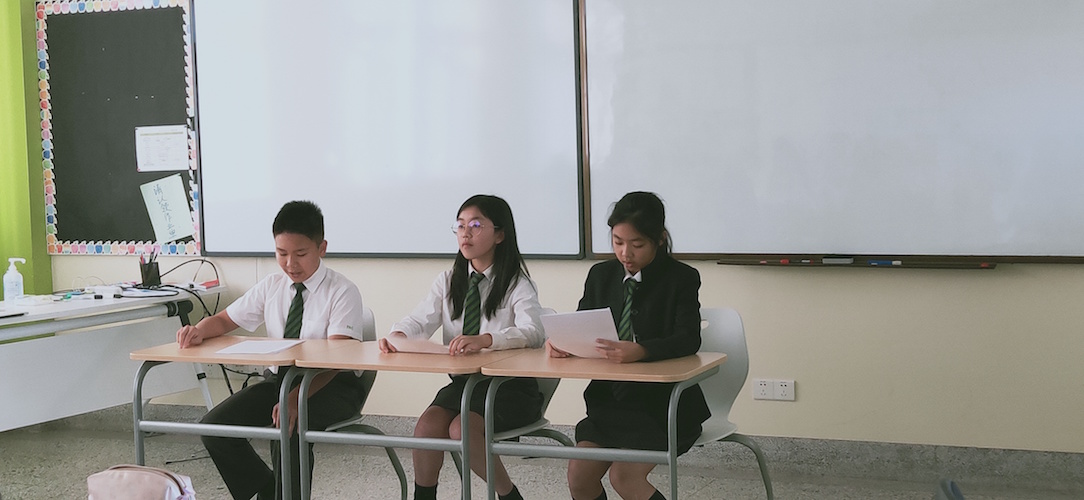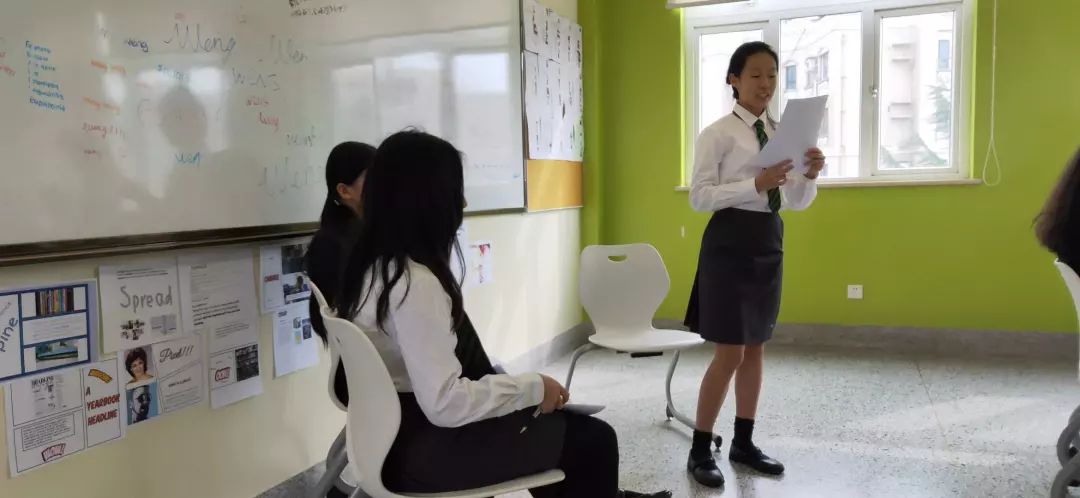At YK Pao School, developing a strong humanities curriculum within the Primary School and Middle School is an essential part of the school’s whole-person education philosophy. At the Primary School, the humanities curriculum and science curriculum come together to form the school’s Exploratory Units (EU) - a comprehensive student-centered interdisciplinary course that is child-centered and stimulates student interest in learning.
At the Middle School, Pao School's humanities curriculum is based on the National Curriculum - covering geography, history, ethics and the rule of law, as well as expanded content taught in English. The curriculum requires students to have certain basic knowledge and skills, but also, more importantly, to consciously cultivate their analytical thinking, creativity, research skills, oral expressiveness and ability to work independently.
Questions discussed in Year 7 History classes this month:
Recently, there have been incidences in which an elderly person falls down and nobody stops to help them. Why is this happening? How can it be resolved?
Some young people, rather than working and pursuing their own adult life, never leave the family home and grow old alongside their parents. What do you think of this phenomenon?
Before their children take important exams, many parents go to the temple to burn incense sticks and pray for their children to do well. What do you think of this?
What has been your most profound experience? What do you think is the most important aspect of human existence?
During the Warring States Period, a person stole a neighbor's money because they were suffering from the burden of excessive taxation and were struggling to survive. How could such a phenomenon be prevented?
The Middle School humanities curriculum focuses on training creativity, speculation and expression skills while imparting subject-specific knowledge. For example, in world history class, students learn about the history of ancient Greece and the achievements of Greek civilization in areas such as art and literature. The teachers guide students to think about how these cultural achievements affect our present day lives, showing materials such as posters and videos to explore these ideas. In the course of their studies, students find that ancient Greek civilization is not only contained within the pages of a book, but has influence that lives on in contemporary human existence. Through the integration of different disciplines and the connection of both ancient and modern pedagogy, students develop a strong interest in history, develop their skills of expression, and improve their ability to understand and internalise new knowledge.
——Jane Hu,
Head of Middle School Humanities Department
In Year 7, for example, the entire learning process is divided into eight units arranged by different historical stages and topics. Each unit has key concepts, skills and concepts that students need to master. Now, let’s look at Lesson 8 - The Contention of a Hundred Schools of Thought (first unit, Pre-Qin History) for an insight into how YK Pao School teaches history:
1. What is The Contention of a Hundred Schools of Thought?
In this unit, the teacher teaches basic ideas about the main schools of thought in pre-Qin China, including Confucianism, Legalism and Taoism. Throughout the process, thoughtful classroom discussions take place:
During the Spring and Autumn Period, a soldier from the state of Chu was known to frequently desert the army – when asked about his desertion, he stated, "I have to take care of my aging father. If I die in battle, there will be nobody to support him."
Student A: Taoism advocate: "Do whatever it is you want to do."
Student B: Confucianism advocate: “Benevolent government is based on family relationships. Filial piety is paramount, and this practice is encouraged”
Student C: Legalist: "The deserter must be punished accordingly."

Why did the phenomenon of The Contention of a Hundred Schools of Thought emerge during the Spring and Autumn Period and the Warring States Period?
Student A: People were dissatisfied with the status quo, such as with the class system, so different philosophies arose.
Student B: There were many countries and each country had its own political system, opening up the exploration of different ideas.

2. Why the past is still relevant today?
In-class lectures allow students to gain an understanding and mastery of basic historical knowledge. After that foundational knowledge is established, the teacher designs a corresponding individual or group project according to the importance and difficulty of each unit, whilst ensuring that the activities are enjoyable in order to ensure student engagement and to maximise their learning potential.

Interview with Young Thinkers
A group of four people prepare four interview questions, assign tasks within the group, select an interviewer, select three guests to interview and then conduct an interview:
The moderator needs to select a school of thought, answer one question, and is responsible for writing the moderation guide.
The guest chooses a thinker who represents a certain school of thought and answers two questions based on the thinker's point of view.
After coming together, students collaborate to prepare their interview questions, prepare a moderation guide, complete a draft interview and give a presentation to the class.
When it was finally time to present to the class, the students were a bit anxious. The presenters busily checked everything was in order: background images, video, audio and other materials that needed to be used, while the other groups carefully studied the evaluation sheet. The teacher also prepared historical costumes for the students to wear during the presentation. They were encouraged by their classmates, "Put on the costumes and step into your roles!"
As seen in the video, each group has their own distinctive strength, such as originality, persuasiveness or strong language skills. In all the different techniques used, the students demonstrated a deep understanding of the core ideas from different schools of thought during this period. Students were also able to analyze these ideas on their own, more comprehensively than before. Even more impressive is that several international students also participated in the group activities, completing the entire interview process in Chinese and English together, expressing their different views.
The Contention of a Hundred Schools of Thought lesson is an important and challenging chapter in students' Year 7 history studies. The group work allows the students to deepen their teamwork and research skills, while also giving them the chance to present what they learn in a creative way and showcase their unique voices. Overall, it's outstanding way to learn about this very important period in Chinese history."
——Year 7 history teacher Sharpay Cao